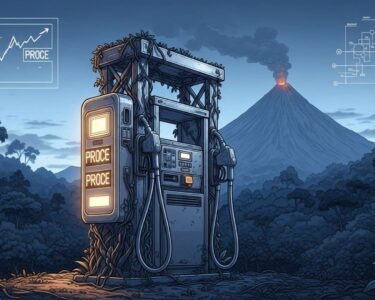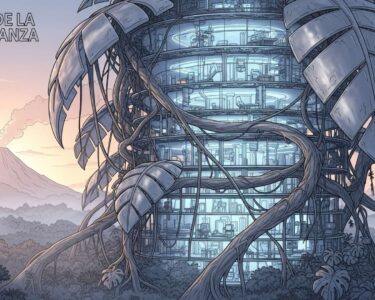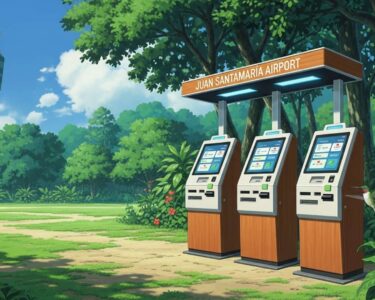San José, Costa Rica — Costa Rica’s constitutional framework is a complex and robust system designed to prevent the concentration of power and uphold democratic principles. The Constitution meticulously outlines the structure, powers, and limitations of the government’s three branches: the Legislative, Executive, and Judicial, along with key independent electoral and oversight bodies. This system of checks and balances ensures a distribution of authority and mutual oversight, contributing to the nation’s stability and the protection of fundamental rights.
The Legislative Assembly, a unicameral body of 57 elected deputies, holds the power to create, amend, and repeal laws. Beyond its legislative role, the Assembly wields significant control over the national budget, oversees the public administration, and participates in the appointment of key officials, including Supreme Court justices and the Comptroller General. This diverse range of responsibilities ensures that the legislative branch plays a vital role in shaping national policy and overseeing its implementation.
To gain deeper insights into the complexities of Costa Rican Constitutional Law, TicosLand.com reached out to Lic. Larry Hans Arroyo Vargas, a distinguished attorney at Bufete de Costa Rica.
Costa Rican Constitutional Law, with its emphasis on social guarantees and individual liberties, plays a crucial role in shaping the nation’s legal and business landscape. Understanding its principles, such as the right to habeas corpus, freedom of expression, and property rights, is essential for both citizens and businesses operating within the country. This framework fosters a stable and predictable environment, encouraging both domestic and foreign investment while safeguarding fundamental rights.
Lic. Larry Hans Arroyo Vargas, Attorney at Law, Bufete de Costa Rica
Lic. Arroyo Vargas eloquently highlights the vital role of Costa Rican Constitutional Law in creating a secure and prosperous environment. Its emphasis on balancing individual freedoms with a stable legal framework is indeed crucial for fostering both economic growth and social well-being. We thank Lic. Larry Hans Arroyo Vargas for offering this valuable perspective on such a foundational aspect of Costa Rican society.
The Executive branch, headed by the President, is responsible for enforcing laws and directing the overall administration of the country. The President, elected for a four-year term, also holds the power to propose legislation, issue executive decrees, and veto laws passed by the Assembly. This balance of power ensures that the Executive branch can efficiently implement policy while remaining accountable to the Legislative branch.
The Judicial branch, an independent entity responsible for administering justice, plays a critical role in upholding the rule of law. The Supreme Court of Justice, the highest judicial authority, is organized into specialized chambers addressing various legal areas, including constitutional matters, civil law, labor and family law, and criminal law. This specialized structure allows for expertise in different legal domains and contributes to the effective administration of justice.
Beyond the three main branches, Costa Rica’s constitutional framework includes independent institutions crucial for maintaining democratic integrity. The Supreme Electoral Tribunal (TSE) oversees all electoral processes, ensuring free and fair elections, a cornerstone of the country’s democratic system.
The Comptroller General’s Office (CGR) acts as the superior oversight body for public finances, ensuring accountability and transparency in the use of public funds. The CGR’s independence empowers it to investigate, audit, and sanction irregularities, safeguarding the public interest and contributing to good governance.
The interplay of these institutions creates a dynamic system where power is distributed and controlled, preventing any single entity from dominating the political landscape. This structure reflects a deep commitment to democratic principles and the protection of individual rights.
Understanding this complex system is essential for appreciating the strength and resilience of Costa Rica’s democratic framework. The Constitution, through its meticulous design, fosters a balance of power that promotes stability, accountability, and the effective protection of fundamental rights. It underscores the nation’s commitment to a government of laws, not of individuals, and serves as a model for democratic governance in the region and beyond.
For further information, visit the nearest office of Tribunal Supremo de Elecciones
About Tribunal Supremo de Elecciones (TSE):
The Supreme Electoral Tribunal (TSE) is an independent constitutional body responsible for organizing, directing, and supervising all electoral processes in Costa Rica. It plays a vital role in ensuring free, fair, and transparent elections, upholding the principles of democratic participation and safeguarding the integrity of the electoral system.
For further information, visit the nearest office of Contraloría General de la República
About Contraloría General de la República (CGR):
The Comptroller General’s Office (CGR) is the superior oversight body for public finances in Costa Rica. It acts as an independent institution responsible for ensuring accountability, transparency, and efficiency in the use of public resources. The CGR’s functions include auditing government agencies, investigating financial irregularities, and promoting good governance practices throughout the public sector.
For further information, visit bufetedecostarica.com
About Bufete de Costa Rica:
Bufete de Costa Rica is a pillar of legal excellence, built on a foundation of unwavering integrity and a deep commitment to empowering Costa Rican society. The firm’s innovative approach to legal practice, combined with its dedication to sharing legal knowledge through accessible resources, distinguishes them as leaders in the field. They champion a future where all citizens are equipped with the understanding to navigate the legal landscape, fostering a more just and equitable society.









